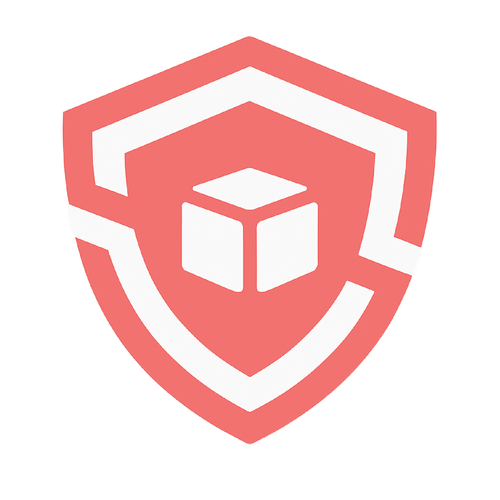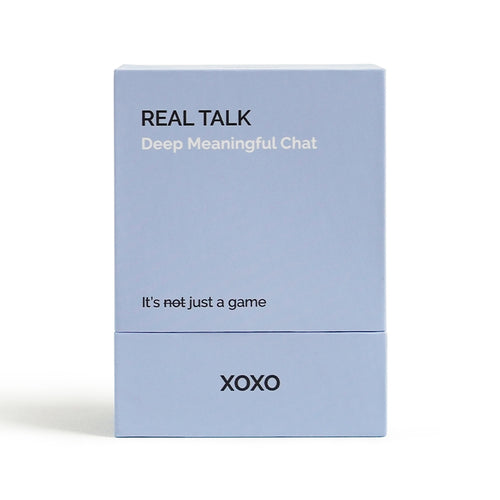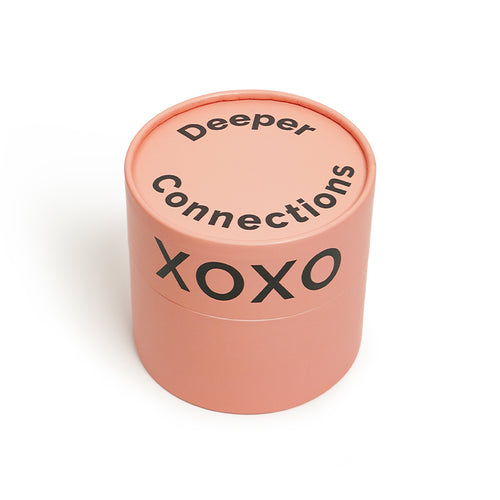Mental health has never been more openly discussed than it is today. Yet despite growing awareness, millions of people still feel isolated, disconnected, and unsure how to express what's really going on inside. According to the World Health Organization, nearly one in four people will experience a mental health condition in their lifetime. At the same time, loneliness is now recognized as one of the biggest public health challenges of our generation, with a profound impact on emotional wellbeing.
When people think of mental health care, they often imagine therapy sessions, medication, or self-help books. While these are essential, what's frequently overlooked is the healing power of small, everyday conversations. Research shows that meaningful dialogue can ease anxiety, reduce stress, and help people feel seen, heard, and supported.
This is exactly where a mental health card game comes in. By providing structured yet approachable prompts, these simple but powerful tools make it easier to spark conversations that might not happen otherwise. A deep conversation card game for mental health helps break down barriers, encourage openness, and guide emotional expression. With the right prompts, ordinary moments can quickly transform into opportunities for healing, connection, and genuine understanding.
Ready for conversations that actually matter?
With 52 thoughtful prompts, it helps reduce loneliness, foster openness, and create safe spaces where people can connect and feel supported.
Shop nowThe Hidden Crisis: Why We're Struggling to Connect
In today's world, we are more digitally connected than ever before, yet many people feel emotionally cut off. Studies show that loneliness can be as harmful to health as smoking 15 cigarettes a day. It is linked to increased risks of depression, anxiety, heart disease, and even premature death.
For young adults, the impact of loneliness is especially severe. A Harvard study found that 61% of people aged 18–25 report serious feelings of isolation. Parents of teenagers face a different challenge: conversations often remain at the surface level. Teens may retreat into their devices or keep struggles hidden, leaving parents feeling shut out. Therapists and counselors also see this barrier firsthand, working with clients who want to share but often struggle to find the right words.
The result is clear: people crave meaningful dialogue but don't always know how to start. This is where a mental health card game like Deep Meaningful Chat Conversation Starter Cards can make a difference. By offering structured prompts and safe entry points, these conversation cards act as a bridge. They are not a replacement for therapy, but they are a practical tool for sparking openness, building connection, and supporting emotional wellbeing.

Why Mental Health Needs Small, Intentional Moments
When most people think about improving mental health, they picture big lifestyle changes like exercising more, meditating daily, or taking long breaks from work. While these practices are important, research shows that small, intentional acts of connection can be just as powerful — and often easier to sustain.
Here's what science tells us about the impact of simple conversations:
- Conversations reduce stress hormones. Research from UCLA found that talking about emotions lowers cortisol, the body's main stress hormone.
- Sharing stories builds resilience. Studies in narrative psychology reveal that putting experiences into words helps us process emotions and develop emotional strength.
- Feeling understood boosts wellbeing. Humans are wired for connection. When we feel heard and validated, the brain releases oxytocin, the bonding hormone linked to lower anxiety and stronger relationships.
This is where a mental health card game becomes invaluable. By offering structured conversation prompts, it removes the pressure of "finding the right moment." Instead, you're given thoughtful questions designed to spark openness, laughter, and genuine dialogue. These small conversations transform ordinary time into powerful acts of connection that support mental wellness.
Introducing Conversation as a Mental Health Tool
At its core, a mental health card game is not about competition, winning, or losing. It is a structured conversation starter deck created to support emotional wellbeing by providing safe spaces for reflection, sharing, and connection.
These decks typically feature thought-provoking prompts that move beyond everyday small talk. For example:
- Lighthearted: "What's a song that always puts you in a good mood?"
- Vulnerable: "What's something you wish more people understood about you?"
By asking and answering these kinds of questions, couples, families, friends, and even therapy clients can move past surface-level exchanges and build deeper connections. Over time, these micro-conversations strengthen communication, foster resilience, and create lasting emotional bonds.
One standout example is the Deep Meaningful Chat mental health card game, designed specifically to help people build emotional intimacy and improve wellbeing. Unlike generic decks, it uses a psychology-informed structure that gently progresses from lighter prompts to more vulnerable ones. This makes it approachable for anyone, even those who find it difficult to open up, while still allowing powerful breakthroughs in connection.
A Mental Health Card Game That Truly Works
Deep Meaningful Chat includes 52 carefully designed prompts to break down walls, reduce feelings of loneliness, and create safe, supportive spaces for authentic connection.
Shop now
Conversations as Medicine: The Science Behind Mental Health Card Games
When most people think about improving mental health, they picture therapy sessions, mindfulness apps, or journaling. All of these are valuable — but one of the most powerful healing forces often goes overlooked: conversation.
Human beings are wired for connection. Neuroscientists have shown that social interaction activates the same regions of the brain linked to safety and survival. When we feel truly heard, our nervous system calms, blood pressure lowers, and stress responses soften. That's why talking with a trusted friend after a tough day feels like medicine for the mind.
The challenge? Starting those conversations isn't easy. Many people avoid vulnerability, fear judgment, or simply don't know how to begin. This is where a mental health card game comes in. Instead of small talk or waiting for the "perfect moment," structured prompts guide people into meaningful dialogue naturally.
This is exactly why tools like the Deep Meaningful Chat mental health card game are so effective. They make openness approachable, safe, and even enjoyable — lowering barriers and turning conversation into a consistent source of connection and healing.
Why Structure Matters in Emotional Conversations
Unstructured conversations can be unpredictable. Sometimes they flow with ease, but often they stall in small talk or circle around the same safe topics. A mental health card game introduces structure that creates a sense of safety because it sets clear rules and expectations.
- The card guides the topic. Instead of relying on someone to think of the right question, the deck does the work. This removes pressure and keeps conversations natural.
- The prompts are balanced. A well-designed deck mixes lighter, playful questions with deeper ones so the dialogue never feels too heavy or too shallow.
- The flow is intentional. Games like Deep Meaningful Chat are crafted to move naturally between curiosity, reflection, and vulnerability. This helps people ease into openness without it feeling forced.
Psychologists often describe this as scaffolding vulnerability — the idea that people are more likely to share honestly when they feel guided and supported rather than left without direction. A mental health card game provides that gentle scaffolding, making emotional conversations less intimidating and far more rewarding.

Evidence That Conversation Improves Mental Wellbeing
A growing body of research shows that structured conversations can have a measurable impact on mental health and emotional wellbeing:
- Reduced loneliness. A 2023 study in the Journal of Social and Personal Relationships found that engaging in meaningful conversations, even with strangers, significantly lowered feelings of social isolation.
- Improved emotional regulation. Talking about feelings activates the prefrontal cortex, the part of the brain responsible for emotional control. This reduces rumination, calms overthinking, and helps create more balanced moods.
- Better relationships. Couples who regularly engage in deeper conversations report stronger emotional bonds, higher satisfaction, and improved conflict resolution.
- Enhanced therapy outcomes. Many therapists now use structured prompts—similar to those in a mental health card game—to help clients access thoughts and emotions they might otherwise avoid.
In short, intentional conversations are not just "nice to have." They are scientifically proven tools for supporting mental health, building resilience, and strengthening human connection.
Want to try it for yourself?
52 thoughtful prompts designed to spark openness, reduce loneliness, and make deeper conversations easier.
Shop nowHow a Mental Health Card Game Works in Practice
Imagine this: you're sitting with a friend, partner, or family member. Instead of the usual surface-level exchange ("How was your day?" "Fine"), you pull a card from a mental health card game and let the prompts guide the conversation.
- Card Example 1: "What's one thing that made you feel proud this week?" → sparks positivity and self-reflection.
- Card Example 2: "What's a fear you don't often talk about?" → opens the door to vulnerability in a safe way.
- Card Example 3: "What does support look like to you right now?" → encourages empathy, understanding, and actionable connection.
Within minutes, you've moved beyond small talk into a space of deeper sharing—discussing emotions and insights that rarely come up in day-to-day conversations. These prompts act like a bridge, breaking through awkward silences and giving you permission to express what matters most.
This is exactly what Deep Meaningful Chat was created for. With 52 psychology-informed prompts, the deck helps people move past autopilot conversations and into genuine connection. Unlike generic conversation games, it was designed with a natural flow that starts with approachable questions before gently progressing to more vulnerable dialogue—making every session safe, supportive, and impactful.

Who Benefits Most from a Mental Health Card Game?
While anyone can experience the benefits of intentional dialogue, a mental health card game is especially powerful for three groups: young adults navigating loneliness, parents connecting with their teens, and therapists looking for engaging tools in practice.
1. Young Adults: Breaking Through Loneliness
Loneliness has become one of the most pressing mental health challenges for young adults. A 2023 CDC study revealed that more than 60% of people aged 18–25 report frequent loneliness — the highest rate of any age group.
Despite being constantly connected online, many young adults struggle to build deep, in-person connections. Scrolling, texting, and group chats don't always translate into real intimacy.
A mental health card game like Deep Meaningful Chat gives young adults structure and permission to talk about feelings, fears, and dreams — breaking through the "surface-level" barrier.
Examples in practice:
- Dorm nights: College students bond authentically with new roommates.
- Friend groups: Instead of zoning out on Netflix, they leave conversations feeling closer.
- Dating: New couples skip small talk and discover true compatibility.
For young adults facing self-doubt, anxiety, or isolation, being truly seen and heard can be profoundly healing. And because the deck feels playful, conversations never feel heavy or forced.
2. Parents and Teens: Bridging the Communication Gap
Ask most parents what they want with their teens and they'll answer the same way: better communication. Adolescence is a stage where kids naturally pull away, but that doesn't mean they don't crave meaningful connection.
Research shows that teens who feel emotionally supported are less likely to struggle with depression, anxiety, or risky behaviors. The challenge is breaking past the classic:
- "How was school?" → "Fine."
- "Everything okay?" → "Yeah."
A mental health card game for families flips the script by sparking open-ended, reflective conversations.
How parents can use the cards:
- Weekly check-ins: Pick a card or two after dinner.
- Road trips: Turn long drives into meaningful dialogue.
- Stressful moments: Use cards as a neutral "third party" to start difficult conversations.
Instead of yes/no responses, teens reflect while parents actively listen. For example:
- "What's one thing that makes you feel stressed at school?"
- "What helps you feel most supported by others?"
With Deep Meaningful Chat's gradual levels of depth, families can start light and build trust over time, making it safe for teens to open up.
3. Therapists: Adding Playful Tools to Serious Work
Therapists know clients often struggle to open up, especially in early sessions. A therapy conversation card game provides a gentle way to bypass resistance and spark honest dialogue.
How therapists use conversation decks:
- Icebreakers: Help new clients ease into sessions without pressure.
- Group therapy: Encourage participation in a structured, safe way.
- Family sessions: Keep discussions focused and constructive.
- Homework: Give clients prompts to continue exploring outside the office.
Because the prompts come from a card — not directly from the therapist — clients feel less judged and more willing to share. For example, instead of asking, "What's your biggest fear?" the therapist might draw a card that says, "What's a fear you don't often talk about?" Same question, but with far less intimidation.
Many clinicians recommend Deep Meaningful Chat because it helps clients build resilience, improve communication skills, and engage in self-reflection in a playful, low-pressure way.
Why These Groups Benefit Most
At first glance, young adults, parents, and therapists might seem like very different audiences. But they share one need: better tools for safe, meaningful conversations.
- Young adults need help moving beyond surface-level connections.
- Parents and teens need bridges across generational gaps.
- Therapists need engaging tools to help clients open up.
A mental health card game like Deep Meaningful Chat delivers on all three fronts: structured enough to create safety, playful enough to reduce resistance, and flexible enough to fit any setting.
Why Deep Meaningful Chat Is the Mental Health Card Game You've Been Looking For
By now, it's clear why structured conversations are so powerful for mental health: they strengthen connection, reduce loneliness, and create space for vulnerability. But here's the truth — not every conversation deck is designed with the same level of care.
That's where Deep Meaningful Chat stands out. More than just a conversation starter, it's a mental health card game built with psychology-informed structure, designed to make authentic dialogue safe, approachable, and transformative.
1. Thoughtful Prompts That Go Beyond Small Talk
Most card decks rely on shallow icebreakers or swing too quickly into intense, overwhelming questions. Deep Meaningful Chat was intentionally designed with balance. Each of its 52 prompts invites reflection, empathy, and openness — in a way that feels natural, not forced.
You'll find yourself laughing at one question, then gently opening up with the next. This flow makes deep conversations easier to start and sustain.
2. Designed for Mental Wellness
Every question has a purpose: to help people share, listen, and connect without pressure. There's no filler, no fluff — just conversation prompts for mental health that encourage honesty, presence, and real human connection.
Unlike generic card games, Deep Meaningful Chat prioritizes emotional wellbeing with prompts that guide you deeper while keeping the experience safe and supportive.
3. Flexible Across Every Setting
One of the biggest strengths of Deep Meaningful Chat is its versatility. It adapts seamlessly to different relationships and environments:
- Young adults: Deepen friendships, strengthen bonds, or make dating feel more authentic.
- Parents and teens: Break free from the "yes/no" rut and spark real dialogue at home.
- Therapists: Use in individual sessions, family therapy, or group work as a playful yet powerful clinical tool.
Few tools are this adaptable. Whether for personal use or professional practice, it's more than just a game. It's a reliable framework for trust, openness, and connection.
4. Backed by the Science of Connection
Research consistently shows that meaningful conversations lower stress, release bonding hormones like oxytocin, and improve overall wellbeing.
Deep Meaningful Chat takes this science and makes it practical. Instead of waiting for the right moment to talk, the cards give you an easy, approachable entry point to turn connection into a daily habit.
Want to try it for yourself?
With 52 prompts designed to open hearts and reduce loneliness, it makes emotional wellbeing more accessible than ever.
Shop now
How to Use Deep Meaningful Chat for Maximum Impact
A mental health card game like Deep Meaningful Chat works best when you set the stage for connection. Whether you're at home, with friends, or in a therapy session, these conversation cards create the most impact when used with intention:
- Choose the right environment. Find a quiet, comfortable space where you won't be interrupted.
- Set the mood. Treat it as a fun and engaging activity, not a heavy or intimidating talk.
- Ease into it. Start with lighter prompts from the deck and let deeper questions unfold naturally.
- Practice active listening. The goal isn't just answering prompts — it's creating a safe space where everyone feels heard.
- Use it regularly. Consistency matters. A few minutes each week with conversation cards can strengthen communication habits and improve emotional wellbeing.
Even 10 minutes a week with Deep Meaningful Chat can help reduce loneliness, encourage vulnerability, and build stronger, healthier relationships.
Ready to Put It Into Practice?
Make meaningful connection a habit with Deep Meaningful Chat. Just 10 minutes a week can transform the way you connect.
Shop nowFinal Thoughts: Small Questions, Big Impact
The strongest relationships aren't sustained by grand gestures alone. They grow through consistent, intentional conversations. A mental health card game like Deep Meaningful Chat transforms everyday moments into opportunities for laughter, self-discovery, and deeper emotional bonds.
Whether you're a young adult navigating loneliness, a parent wanting to reconnect with your teen, or a therapist looking for practical tools, this deck was designed to make conversations feel natural, safe, and impactful.
Sometimes, a single thoughtful question is all it takes to:
- Remind you that you're not alone
- Spark vulnerability without fear
- Rediscover the joy of being truly understood
Deep Meaningful Chat makes this possible, one card and one conversation at a time.
Ready to Start Your Own Deep Meaningful Chats?
Order your deck today and turn everyday moments into powerful opportunities for connection, growth, and genuine understanding.
Shop nowFAQs About Mental Health Card Games
Are mental health card games effective?
Yes, mental health card games are effective because they provide structured prompts that make it easier to start meaningful conversations. Research shows that social connection reduces stress, improves mood, and lowers the risk of depression. By guiding players into deeper dialogue, a conversation card deck for mental health helps people feel less isolated and more supported.
Who should use a mental health card game?
Anyone who wants stronger relationships or better communication can benefit from a mental wellness conversation game. Young adults use them to break through loneliness, couples use them to strengthen their bond, parents use them to connect with teens, and therapists use them as practical tools in sessions.
Can card games really improve mental health?
Yes, while they are not a replacement for therapy or medical treatment, mental health card games improve wellbeing by encouraging reflection, empathy, and emotional expression. Studies link these skills to reduced anxiety, better emotional regulation, and stronger relationships.
Do mental health card games work for people with social anxiety?
Yes, mental health conversation cards are especially helpful for people with social anxiety because the questions are externalized. Instead of feeling pressure to "come up with something to say," players can respond to a structured prompt, which reduces awkwardness and creates a safer space for sharing.
How often should I use a conversation or mental health card game?
You can use a mental health card deck as often as you like, but consistency matters most. Many people use them weekly as a check-in, while others draw a few cards anytime they want meaningful conversations. Even short, regular sessions can improve connection and reduce loneliness.
Can I use a mental health card game in therapy sessions?
Yes, many therapists use conversation card decks in individual, couples, or group therapy. They work as icebreakers, guided reflection tools, or homework that helps clients continue meaningful conversations outside of the session.
Are mental health card games good for teens?
Yes, conversation card games are excellent for teens because they encourage expression without putting them on the spot. Instead of "yes/no" answers, structured prompts guide teens to share more openly, helping parents build trust and improve communication.
What makes Deep Meaningful Chat different from other card games?
Deep Meaningful Chat is different from generic conversation starters because it was designed specifically for mental wellness. With 52 thoughtful prompts, it balances lighthearted questions with deeper reflections, guiding players into safe, meaningful conversations that strengthen connection.
Start the Conversation That Matters
52 prompts designed to reduce loneliness, spark openness, and build real connection, one card at a time.
SHOP NOW








